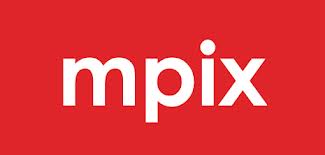Job Search Resources for International Students
Throughout your job search, be sure to check out the Career Center resources to help you with interviews, resume and cover letters, and networking. Visit our Career Resource Center to connect with staff members who can help you navigate this process.
Below are additional resources specifically for you, as an international student, to assist with your job search while at Pittsburg State University.

- Researching organizations that have hired international students
- Common Cultural Barriers to the Job Search
- Sharing your Immigration Status
As an international student, you may also face special challenges in getting internships and jobs in the U.S. Complex and changing immigration regulations, a lack of clear information about which employers hire international students, and cultural differences will require you to spend additional time and effort to learn about employment policies and practices that may affect you.
You may have concerns about whether employers in the U.S. will hire international students. Online research and networking conversations can help you identify organizations that have hired international workers in the past. As you conduct online research to learn more, consider the following resources:
Handshake
Check Gorillas4Hire on Handshake regularly, as we add and approve jobs daily. Filter jobs by employers that accept CPT/OPT or sponsor international students. However, employers that don’t show up may still be open to hiring international students, they just haven’t checked those boxes.
Top 200 Employers
The Student and Exchange Visitor Program (SEVP) at the U.S. Department of Homeland Security captures data from SEVP-certified schools and active international students to create lists of the top 200 employers who hired pre- and post-completion OPT students (PDF), STEM OPT students (PDF), and CPT students in 2019.
My Visa Jobs
My Visa Jobs identifies employment opportunities for foreign nationals who want to live and work in the U.S. and Canada. Search annually updated lists of employers accepting H-1B visa holders. Sort lists by state, industry, or job title. This site also contains information about work authorizations and information about a variety of industries.
LinkedIn
Once you have identified some international-friendly organizations, you need a plan for applying to jobs and networking with professionals at these organizations. See our networking page to learn more about how to do that.
UNIWORLD:
Directories of American firms operating in foreign countries and foreign firms operating in the U.S.
International Student Job Board
American cultural attitudes and behaviors related to job hunting may be different to those of your own culture. If you have not thoroughly absorbed American work-related expectations, you may want to read this section, which addresses some possible cultural barriers to an effective job search.
- Self-Promotion: You must be confident in discussing your goals and accomplishments, as well as assertive in making your case, initiating calls and following up with all contacts.
- Directness in Communication: In business, people expect open and direct questions/answers, as well as a firm handshake, eye contact and a confident, but relaxed posture. If these are uncomfortable for you, practice with American friends.
- Self-Disclosure: Many cultures consider personal questions about likes and dislikes or strengths and weaknesses as an invasion of privacy by all except family and close friends. However, you will probably be asked to disclose along these lines in an interview. Preparation should enable you to do this more comfortably.
- Career Self-Awareness: In the U.S. you are expected to demonstrate knowledge of yourself, your career goals and how they relate to the job. Informational interviewing will help you prepare.
- Individual Responsibility in Finding Employment: Personal and professional networks are very important in finding jobs in the U.S., and in general, you must create them. Put great effort into identifying multiple job possibilities. If it is any consolation, the self-directed nature of this process comes as a surprise to most Americans, too.
- Language Barriers: Employers value effective communication when recruiting. They may be concerned about your writing and speaking ability. Enhance your skills by speaking during class, talking with American friends, completing communication courses, participating in student organizations, watching television, and reading. Provide a well-prepared resume and clearly articulate your responses during interviews. Contact the Career Resource Center for preparation and feedback throughout the application process.
- Value of Time: While it may be common in some cultures to be 15 minutes to 2 hours late, the dominant American culture values punctuality. Avoid any negative perceptions by arriving on time.
- Two-Way Stereotypes: Stereotypes that limit the objectivity of both interviewers and interviewees are almost inevitable. You can best deal with this issue by examining your own stereotypes of Americans, as well as of the particular work culture you are interviewing for, and by imagining what the stereotypes of the potential employer toward you might be. Then, when you communicate, try to indirectly counter questions or actions, or in some cases, confront them directly in your cover letter or the interview.
Below are questions we often hear from international students who want to work in the U.S. after graduation.
Can employers limit their interviewing and hiring to U.S. citizens?
Sometimes, if citizenship is deemed to be an essential part of the position. The National Association of Colleges and Employers has some helpful information on this topic.
Should I list my immigration status on my resume?
You do not need to list your immigration status on your resume. Your educational background and work history will display that you are an international student. You should never lie about your immigration status, but are not required to disclose it on your resume.
When in the hiring process do I reveal that I’m an international student?
Some employers adhere to strict policies against hiring foreign nationals. Others may prefer to hire U.S. citizens, but can be convinced otherwise. It is usually recommended that students wait until an employer asks, but be aware of whether the company has petitioned for visas in the past. If you are being asked to travel for an interview, it would be wise to ask, “Is this a position in which the company is willing to petition for an H1-B as I am currently in F-1 status?” For an additional perspective on this question, read this excerpt from a presentation (PDF) by Adrienne Nussbaum, Assistant Dean for International Student Services at Boston College.
Are there questions that are illegal for an employer to ask me?
An employer MAY NOT ask: “What is your visa type, nationality, place of birth?” or “Of which country are you a citizen?” or “What is your native language?” or “What language do you most often speak?”
An employer MAY ask: “Are you legally authorized to work in the United States?” or “Will you now or in the future require sponsorship for an employment visa?” or “Which languages do you read, speak or write?” (provided that foreign language skills are job related)
I am in F-1 status. What should I say when an employer asks about my work authorization?
Explain that you have the legal right to work in the U.S. for up to twelve months using Optional Practical Training (OPT) following graduation. The employer does not need to do anything in order for this to happen. If you have graduated with a degree in one of the STEM (Sciences, Tech, Engineering, and Math) fields, then share that you are eligible for a 24-month STEM extension of your OPT. If you do not have a degree in a STEM field or if you’ve completed your STEM extension, you should explain that your work authorization may be authorized for another three-to-six years with H-1B status. If the employer asks for more information, you should be able to clearly explain the H-1B process.
Helpful hint: Avoid using the word “sponsor,” instead use the word “petition” when speaking about H-1B status.




